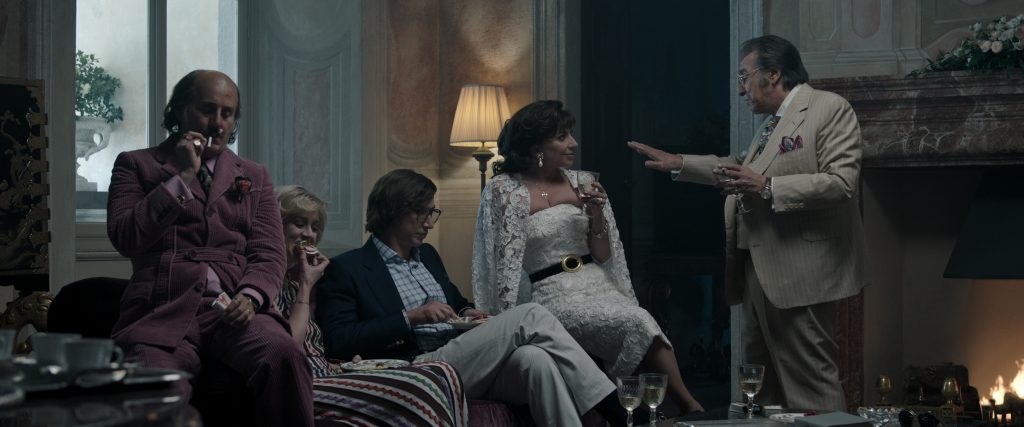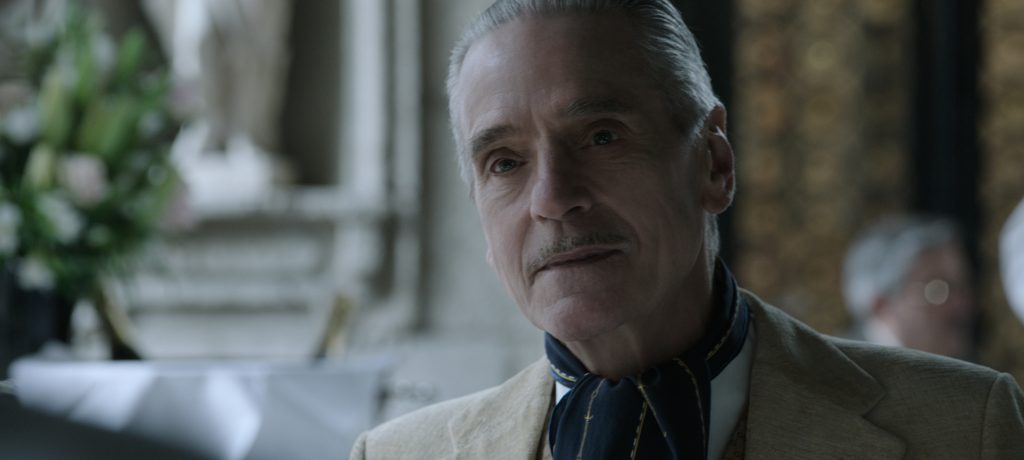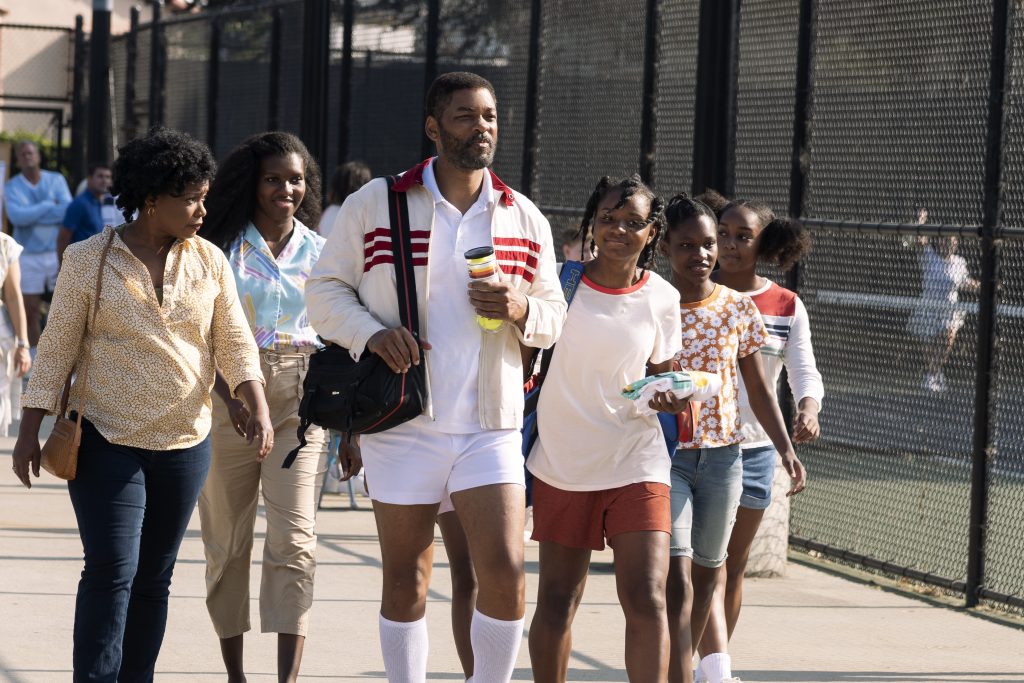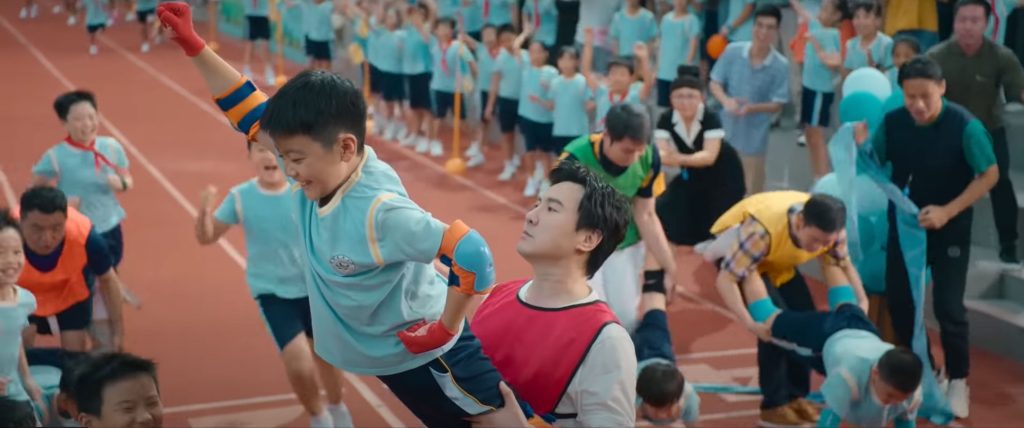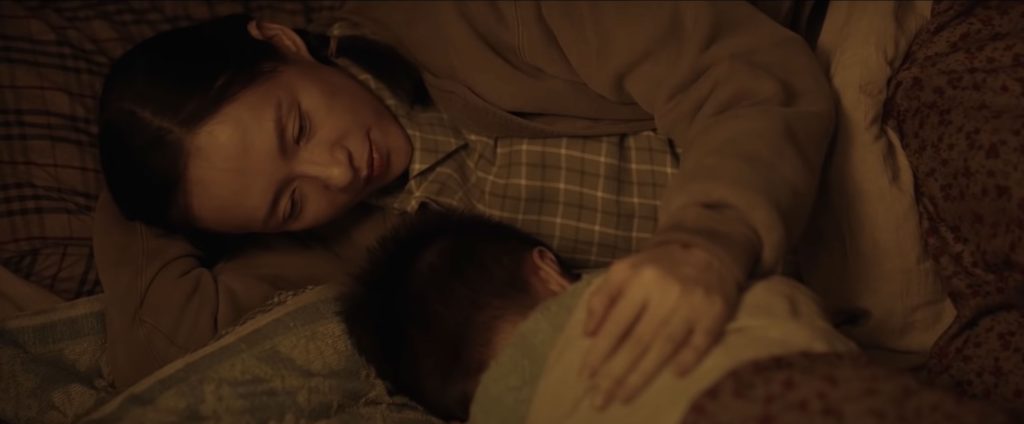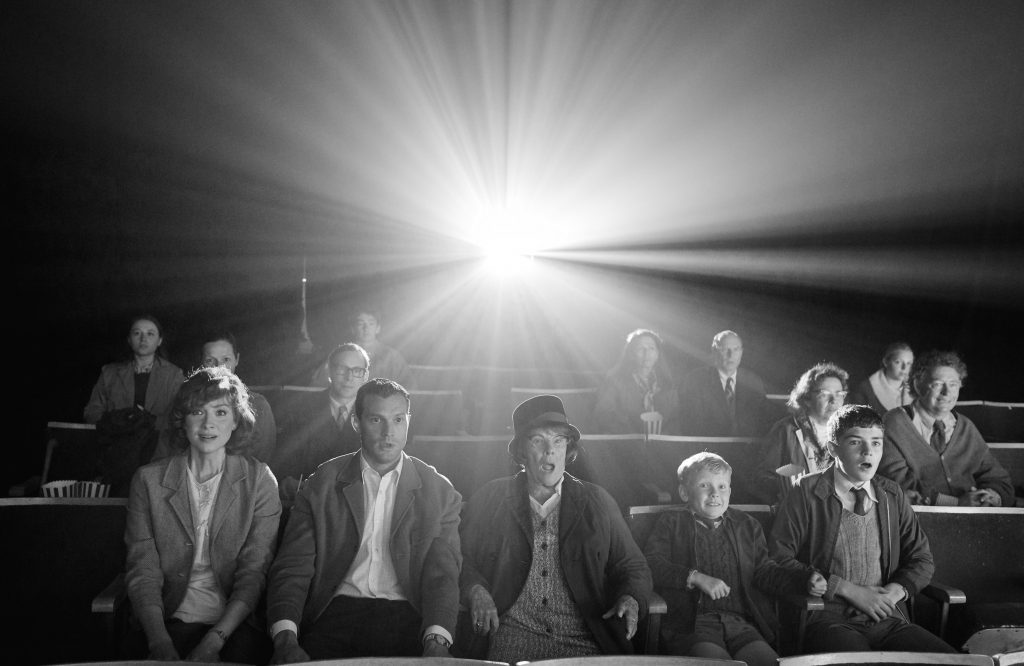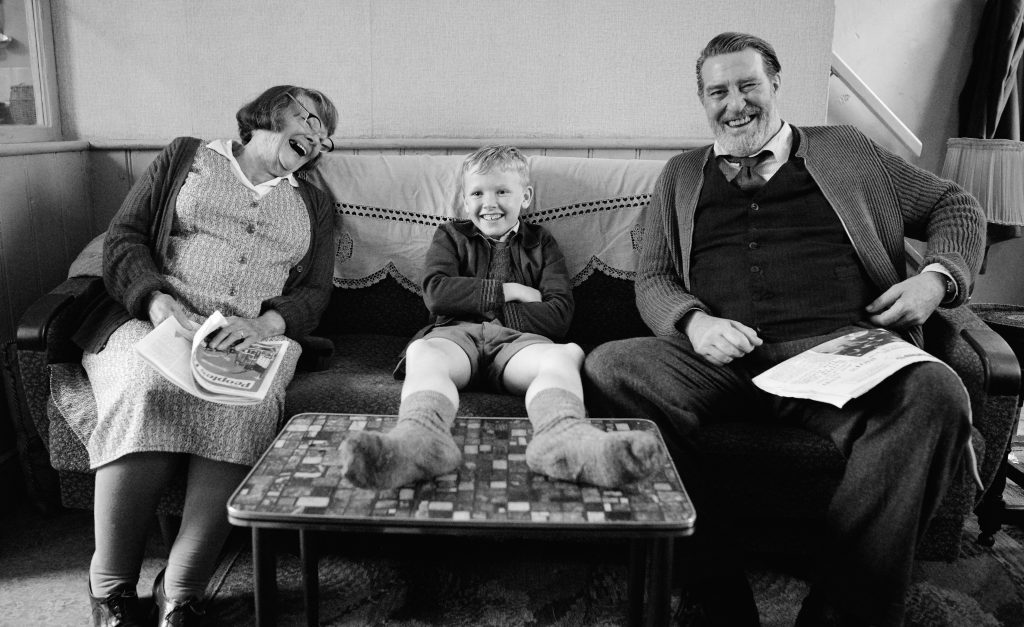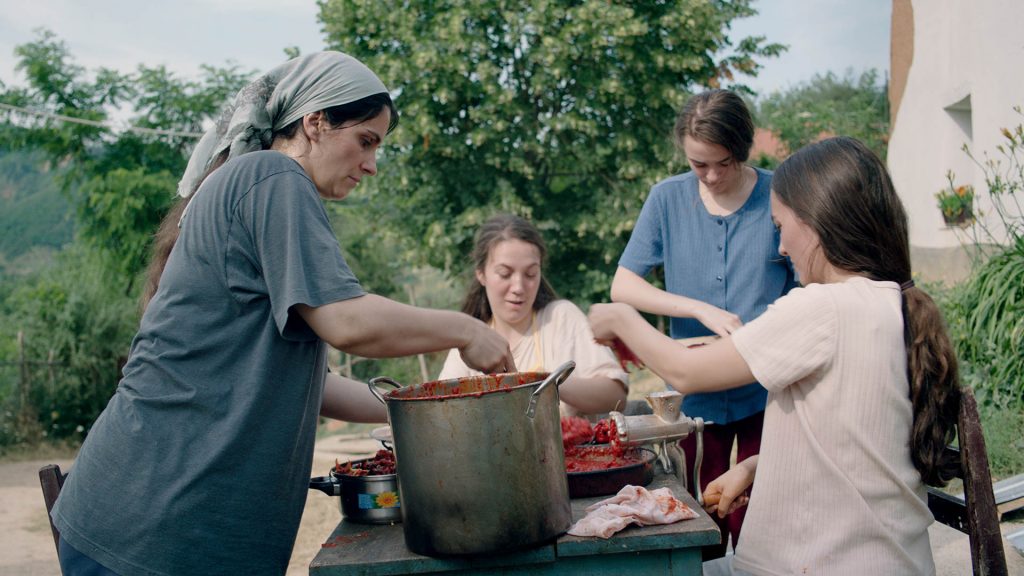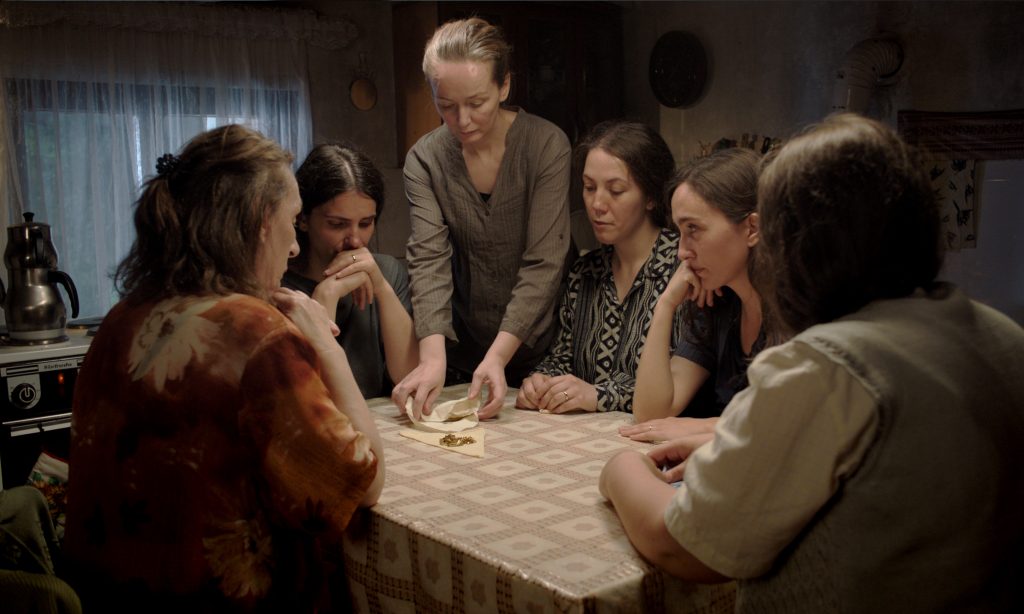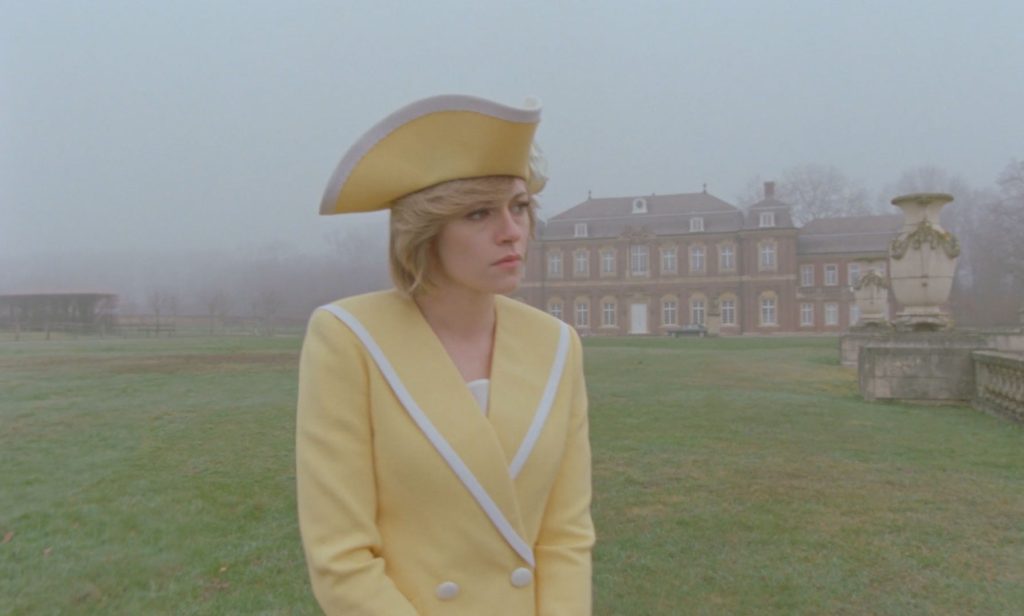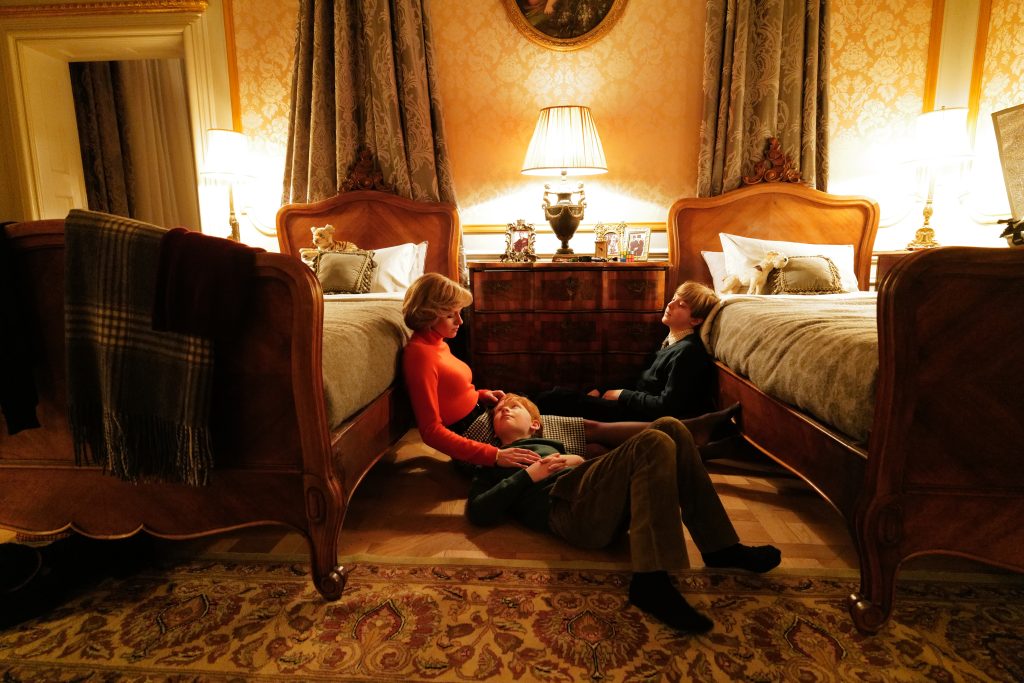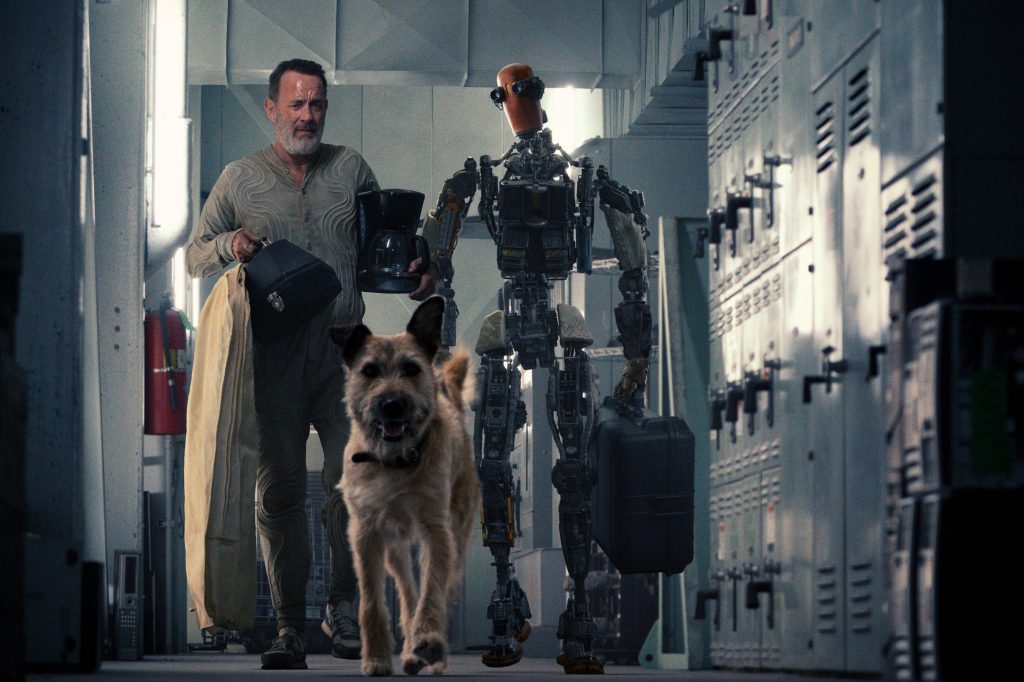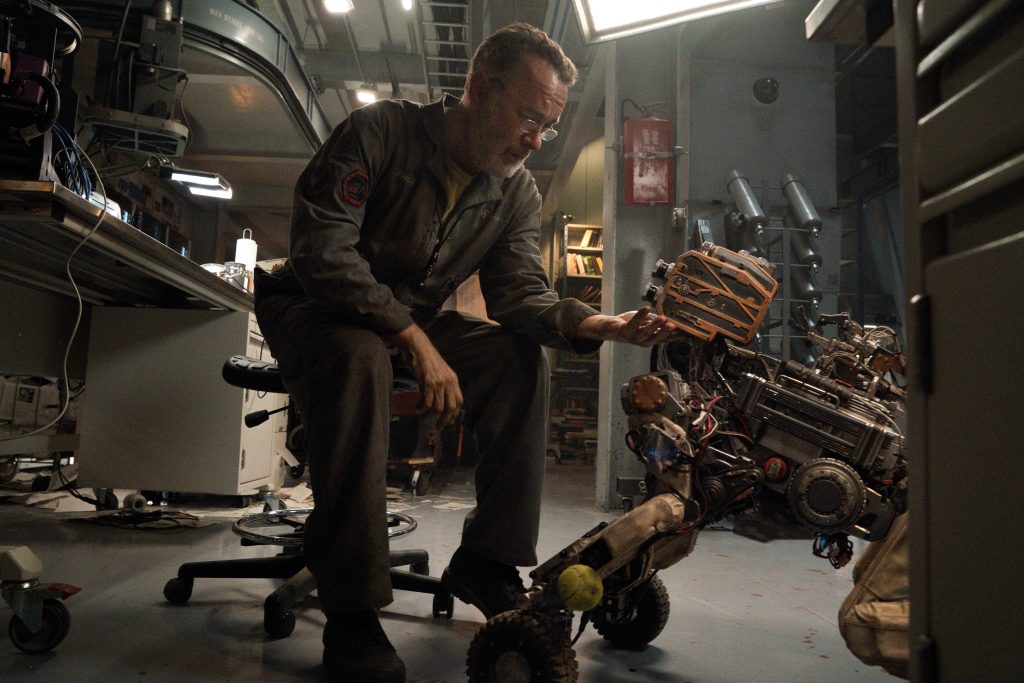November 23, 2021
by Carla Hay

Directed by Stephen Karam
Culture Representation: Taking place in New York City, the dramatic film “The Humans” features a predominantly white cast of characters (with one Asian person) representing the working-class and middle-class.
Culture Clash: A Thanksgiving family gathering in a creaky New York City apartment brings out various levels of tension and secrets.
Culture Audience: “The Humans” will appeal primarily to people who are interested in watching movies adapted from stage plays and movies about family gatherings that show realistic conversations.

“The Humans” will keep viewers guessing on what terrible things might happen at an often-uncomfortable family reunion during Thanksgiving. It’s not a horror movie, but it’s a well-acted study of psychological turmoil. “The Humans” movie is the feature-film directorial debut of Stephen Karam, who adapted the movie from his Tony-winning play of the same name. Don’t expect any major plot twists to happen. This dialogue-heavy movie puts more emphasis on the characters’ interactions and creating an uneasy mood.
If watching “The Humans” makes some viewers feel slightly claustrophobic, that’s clearly the intention. The entire film takes place in one location: a drab New York City duplex apartment in a shabby building. It’s the type of apartment that’s probably overpriced just because it’s in Manhattan’s Chinatown, which has undergone various degrees of gentrification. The apartment has several rooms but still seems cramped and unsettling when the Blake family (the clan at the center of the story) gathers for this Thanksgiving dinner.
The two residents of the apartment are Brigid Blake (played by Beanie Feldstein) and her boyfriend Richard (played by Steven Yeun), who have recently moved into this duplex. Their move is so recent, their new home is still mostly unfurnished. Brigid, who is in her late 20s, is an unemployed classical musician/composer who is looking for work in her chosen profession. Richard, who is 35, is studying to be a social worker.
The other family members who are at this Thanksgiving gathering have all traveled from Pennsylvania. Brigid’s older sister Aimee (played by Amy Schumer) lives in Philadelphia. Brigid and Aimee’s parents are Erik Blake (played by Richard Jenkins) and Deirdre Blake (played by Jayne Houdyshell), who both still live in Scranton, where they raised Brigid and Aimee. Erik’s mother, who’s nicknamed Momo (played by June Squibb), uses a wheelchair and has dementia.
Momo lives with Erik and Deirdre, who is Momo’s primary caretaker while also holding down a job as an office manager. Later on in the movie, Deirdre mentions that she’s been at the same company for 40 years and started working there not long after she graduated from high school. Deirdre expresses some resentment that she’s been passed over for promotions. She complains that she now reports to two guys in their 20s who make a lot more money than she does, just because they have fancy college degrees.
Erik has also been a longtime staffer at his place of employment. For the past 28 years, he’s been working as a maintenance custodian at a Catholic school. As one of the perks of the job, when Aimee and Brigid were children, he was able to enroll them in the school without having to pay tuition. Erik and Deirdre are planning to build a lake house for their retirement. Construction on the house has been stalled due to various issues, but Erik tells the family that things are back on track to finish building the house.
Aimee, who is openly a lesbian or a queer woman, is experiencing some setbacks in her career and personal life. She’s heartbroken over a recent breakup with a girlfriend named Carol, who is not seen in the movie, but who talks to Aimee on the phone during one of the movie’s heart-wrenching scenes. Aimee also tells the family that she’s being ousted from her corporate job because she took too much personal time off from work.
Aimee needed the time off to deal with her medical issues: Aimee has kidney dysplasia and colitis. She hasn’t told her parents yet that she has to make a decision on whether or not to get surgery. Aimee confides in Brigid that she’s afraid that no one will want to date her after the surgery. Brigid gives Aimee a pep talk and tells her that Aimee is attractive and a great catch.
“The Humans” moves along at a slow pace where not much happens except people talking. However, throughout the movie, there are things that literally go bump in the night—specifically, loud thumps that can be heard from the apartment upstairs. The noise unnerves Erik the most. Several times during the movie, Brigid has to assure him that the noise is coming from a harmless elderly woman who lives upstairs.
Out of all the family members gathered for this Thanksgiving, Erik is the one who seems to be the most restless and on edge. He sometimes goes to the windows (which do not have drapes or blinds) to look out, as if he’s certain that people might be looking in on them. This old, creaky building also has problems with its electricity and plumbing. You can easily predict what will happen at one point with the electricity.
“The Humans” might give the impression that it’s going to turn into a haunted house movie. “The Humans” has some “jump scares,” but it’s best if people know in advance not to expect “The Humans” to be a horror film. There’s a feeling of foreboding and dread throughout the film, but it’s mainly from these family members dealing with and confronting their insecurities and secrets.
For example, there are various resentments that certain family members have toward each other. Brigid feels that her mother Deirdre is overly critical of her, while Deirdre resents that bossy Brigid always acts like talkative Deirdre is an embarrassment to the family. Erik and Deirdre are very religious, so they’d prefer that Richard and Brigid live together as a married couple. Brigid seems to want to eventually get married, but it’s a sensitive topic for her because she thinks that she and Richard should be more financially stable before thinking about marriage.
Erik and Deirdre accept Aimee’s sexuality, but they don’t discuss Aimee’s love life at length in the way that they talk about Brigid’s love life. These parents don’t really come right out and say it, but they show through their words and actions that they’re more invested in who Brigid’s life partner will be because they think that because Brigid is heterosexual, she’s more likely to get married and have children.
Erik is more judgmental than Deirdre, when it comes to what other people experience in life. For example, Erik believes that therapy is self-indulgent, and he thinks that he personally never needs therapy in his life. At one point during the dinner, when someone reveals getting treatment in the past for depression, Erik insensitively says that religion has been his own “anti-depressant.”
How religious is Erik? He has a figurine of the Virgin Mary that he has carried with him for this Thanksgiving dinner. And it should come as no surprise that he’s the one who leads the prayer before they begin their Thanksgiving meal. Erik believes in having a traditional patriarchal role for his family. And usually, when someone is this self-righteous in a movie, that person is probably the one who has the biggest secrets to hide.
This is Richard’s first Thanksgiving with the family, so he has the “outsider” role in the movie. He tries to keep the peace when certain family members start to bicker with each other. Richard has some secrets too that eventually come out in the dinner conversation.
As an example of how cheerful Richard wants this family gathering to be, he has a device that can project visual images onto any wall. He chooses to project the image of a cozy, burning fireplace. When it’s projected on the wall, it looks like a real fireplace, and it gives the drab and nearly empty room a warmer ambience.
Brigid, who is somewhat of a control freak, turns off the device because she thinks that having a fake fireplace looks tacky. Richard disagrees and wants to keep some kind of ambience projection image going in the room, to make the room look lived-in and not so barren. Observant viewers will notice that this back-and-forth between Brigid and Richard about whether or not to use this device in the room is not just about any power struggles in their relationship. It’s also about Brigid showing defiance about Erik’s expressed disapproval of the shabby condition of the apartment building.
Erik isn’t shy about telling Brigid that he thinks her choice to live in New York City is somewhat foolish, when she can have bigger and better living space in Scranton for a fraction of the cost of living expenses in New York City. It’s implied that Erik and Brigid have had ongoing disagreements about where she lives. She lives in New York City because she loves it and knows that she will have better career opportunities in New York, but Erik sees it as Brigid turning her back on her Scranton roots. Erik also doesn’t understand why Aimee wants to live in a big city like Philadelphia, although Erik is much more disapproving of Brigid living in New York City.
At first, Richard and Erik have some unspoken awkwardness between them, because Erik doesn’t know Richard very well and isn’t quite sure how much Richard might be a threat to Erik’s influence over the family. However, Richard is very mild-mannered and a people pleaser. Erik starts to warm up to Richard when he sees that Richard has no intention of being the most dominant person in this family.
But some things are really bothering Erik. And little, by little, he begins to reveal what those things are. Erik starts off by telling everyone that he’s been having nightmares of being chased in a tunnel. Richard then confesses that he’s also had a recurring nightmare: falling through an ice cream cone made of grass. Richard is also a sci-fi enthusiast, so he shares a theory of what outer-space aliens must think about human beings on Earth. This theory ties into the main theme of this movie.
Every movie about a family Thanksgiving dinner seems to have it share of family squabbles. “The Humans” is no exception. Much of this discord has to do with family members not feeling respected or heard. For example, an emotional blow-up happens after Brigid shares her disappointment over getting constant rejections for a grant and because her job search hasn’t been going well. Erik replies flippantly, “Well, you can always work in retail.” That comment sets off an argument between certain members of the family.
And what is Momo doing during all of this family drama? She doesn’t say much, but there’s a moment during the dinner when her memory seems very sharp. It gives the other family members some hope that maybe her dementia hasn’t gotten worse. How long that hope lasts is shown in the movie.
Because “The Humans” is more of a “slice of life” film instead of an event-filled movie, some viewers might feel disappointed that the movie isn’t a mystery thriller. The film’s music, cinematography and editing certainly give the impression that something terrifying and possibly supernatural could happen at any moment. However, viewers should know in advance that this movie has several scenes that show mundane activities, such as family members trying to navigate Momo’s wheelchair in narrow doorways, or people making small talk about repairs that need to be done in the apartment.
The main reason to see “The Humans” is for noteworthy performances by the cast members, who bring a lot of authenticity to their roles. The conversations between these family members are at their best when they’re about showing their vulnerabilities and not trying to put up a façade that life is perfect. And that seems to be the point of this movie: It’s easy to blame others for causing misery. It’s a lot harder to admit that people are sometimes their own worst enemies.
A24 will release “The Humans” in select U.S. cinemas and on Showtime on November 24, 2021.

